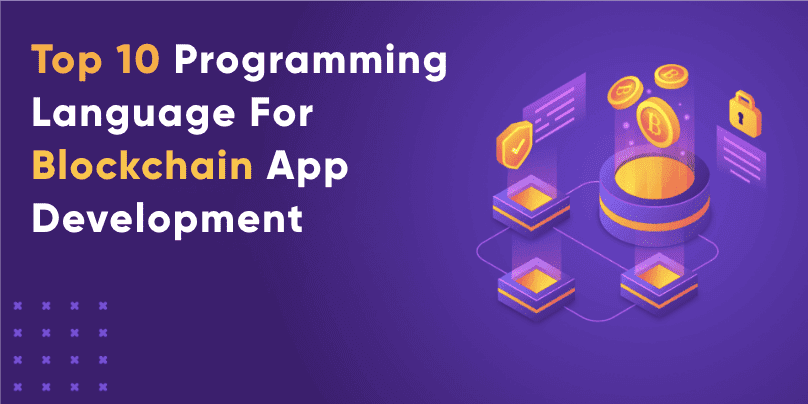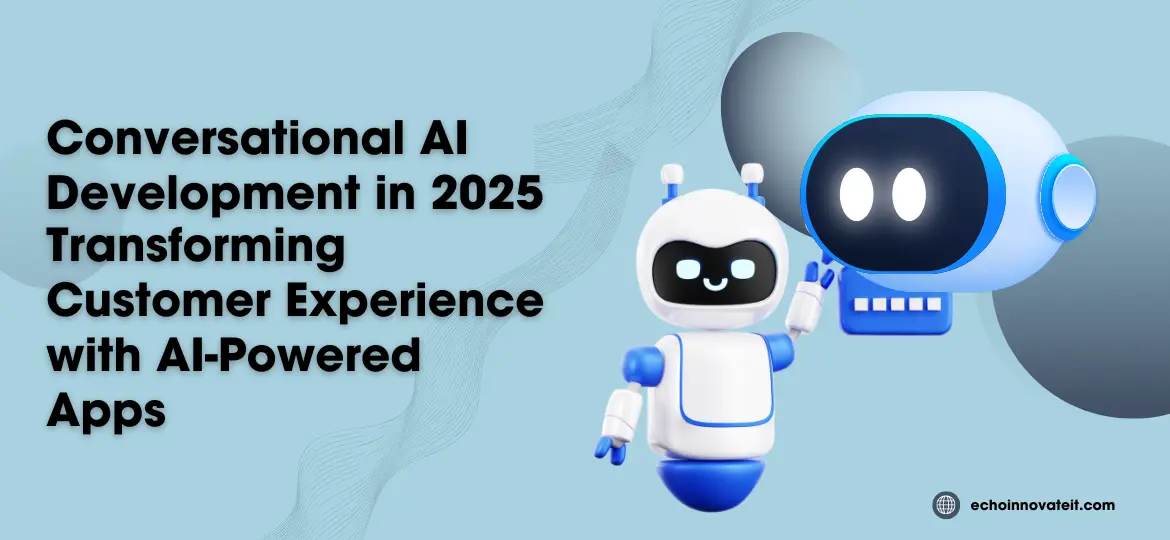Top 10 Programming Languages for Blockchain App Development in 2025
The world of blockchain technology continues to reshape industries — from finance and supply chain management to healthcare, gaming, and real estate. In 2025, the demand for blockchain app development has reached new heights, driven by innovations in Web3, decentralized finance (DeFi), NFTs, and secure mobile payment systems.
If you’re planning to build a blockchain-based Android or iOS app, the foundation of your success begins with choosing the right programming language. Each language offers unique advantages in speed, scalability, and security, which are vital for creating efficient blockchain solutions.
Let’s explore the Top 10 Programming Languages for Blockchain App Development in 2025 — chosen based on their performance, community support, adaptability, and real-world applications in the USA tech market.
1. Solidity — The King of Smart Contract Development
Solidity remains the most widely used language for Ethereum-based dApps and smart contracts.
Best for: Building DeFi apps, NFT platforms, and tokenized mobile applications.
Why it’s popular in 2025: Its continuous evolution with Ethereum 2.0 and EVM-compatible blockchains like Polygon, Avalanche, and Binance Smart Chain.
Keywords: Solidity smart contract development USA, Ethereum app programming, DeFi app development, blockchain programming 2025.
2. Python — Versatile and Developer-Friendly
Python continues to dominate the blockchain app development ecosystem due to its simplicity and massive developer community.
Best for: Rapid blockchain prototyping and AI-integrated blockchain solutions.
Why it’s trending: Ideal for cross-platform mobile app integration, data-driven blockchain apps, and AI-powered financial systems.
Keywords: Python for blockchain USA, AI blockchain apps, Python developers 2025, blockchain app development trends.
3. JavaScript — Powering Web3 and Mobile Blockchain Apps
JavaScript is the backbone of Web3 development, with libraries like Web3.js and Ether.js enabling blockchain integration for web and mobile platforms.
Best for: Building cross-platform blockchain apps, wallet integrations, and dApp frontends.
Why it’s essential: Seamless compatibility with React Native, Ionic, and Node.js for Android and iOS app development.
Keywords: JavaScript blockchain programming, Web3 app development USA, mobile blockchain frameworks, React Native blockchain apps.
4. Go (Golang) — High-Performance Blockchain Development
Go, developed by Google, is renowned for its speed, efficiency, and scalability.
Best for: Building enterprise-grade blockchain networks and performance-intensive apps.
Why it stands out in 2025: Powers major blockchain ecosystems like Hyperledger Fabric, Go-Ethereum, and Cosmos SDK.
Keywords: Golang blockchain programming, Hyperledger developers USA, blockchain backend development, scalable blockchain apps.
5. Rust — The Future of Secure Blockchain Apps
Rust has rapidly become a top choice for blockchain and mobile app developers seeking security and speed.
Best for: Building layer-1 blockchains, crypto wallets, and decentralized Android/iOS apps.
Why it’s trending: Used by Solana, Polkadot, and NEAR Protocol due to its memory safety and performance.
Keywords: Rust blockchain USA, secure blockchain programming, Solana app development, Rust developers USA.
6. Java — The Reliable Choice for Cross-Platform Blockchain Development
Java remains a classic favorite in enterprise app development and is widely used for blockchain-based systems.
Best for: Developing cross-platform mobile apps, enterprise blockchain applications, and banking software.
Why it’s still strong in 2025: Excellent portability, security, and support for Android blockchain app development.
Keywords: Java blockchain programming, Android blockchain development, enterprise blockchain Java apps.
7. C++ — The Foundation of Modern Blockchain Networks
C++ was the language used to build Bitcoin’s core — and it remains crucial for blockchain infrastructure development.
Best for: Building core blockchain systems, mining software, and crypto exchanges.
Why it’s essential: Offers low-level control, high performance, and memory efficiency — perfect for blockchain performance optimization.
Keywords: C++ blockchain programming, Bitcoin development USA, crypto exchange software development, blockchain backend 2025.
8. Swift — Powering Blockchain-Based iOS Apps
Swift is Apple’s premier programming language, ideal for iOS blockchain app development.
Best for: Building crypto wallets, NFT apps, and blockchain-powered payment solutions on iPhones and iPads.
Why it’s trending: Apple’s enhanced security features make Swift perfect for secure blockchain transactions.
Keywords: Swift blockchain apps, iOS crypto wallets, blockchain app development USA, iPhone blockchain integration.
9. C# — Perfect for Microsoft and Cross-Platform Blockchain Apps
C# is widely used in enterprise environments and supports blockchain app frameworks like Stratis and Nethereum.
Best for: Businesses building Windows, Android, and iOS blockchain apps.
Why it’s popular: Its cross-platform capabilities make it an excellent choice for hybrid blockchain solutions.
Keywords: C# blockchain programming, Stratis development USA, enterprise blockchain solutions, Nethereum apps.
10. PHP — The Underrated Contender for Blockchain API Development
While not the first choice for decentralized apps, PHP still plays a role in backend blockchain integration and API development.
Best for: Managing blockchain-based web apps and dashboards.
Why it’s useful in 2025: Easy integration with REST APIs and crypto payment gateways.
Keywords: PHP blockchain backend, crypto payment integration USA, blockchain API development.
Future of Blockchain Programming in 2025 and Beyond
The future of blockchain app development lies in AI integration, cross-platform mobile experiences, and interoperable networks. Developers are focusing on building decentralized mobile apps (dApps) that are faster, more secure, and user-friendly.
Emerging trends shaping the blockchain ecosystem include:
AI-driven smart contract optimization
Cross-chain development frameworks
Blockchain for mobile payments and digital identity verification
Integration of blockchain with IoT and AR/VR apps
Increased use of Rust and Go for enterprise-grade blockchain networks
USA Target Keywords: blockchain app development USA, best blockchain programming languages 2025, mobile blockchain trends, Web3 mobile app development, AI blockchain integration, iOS & Android blockchain apps.
NoUnless you’ve been living under a rock, you’re probably aware of what a Blockchain app development is and it’s potential for transforming the tech sector. Over time, this technology has aided a variety of sectors in overcoming traditional difficulties and seizing new opportunities.
Blockchain is a new technology that is in high demand across all industries. Blockchain has also shown that it has the potential to transform the whole economy, including healthcare, transport, education, and the legal system. It is a security feature that attracts the attention of every industry and strengthens its business and activity. Blockchain App creation on blockchain in cloud computing is safe and secure, and it protects apps from being hacked. Following the launch of Bitcoin, the use of Blockchain technology has grown in popularity.
The Bitcoin and Cryptocurrency technology used by the company allows for high-level security and secure business transactions. Furthermore, programming languages that will benefit your business will be required for Blockchain app development. Developers will gain an advantage, and business workflow will flourish. However, Blockchain technology is in high demand for a variety of applications.
The demand for Blockchain app increased by over 2000% between 2017 and 2020, making it one of the most valuable technologies in the market. By 2024, the Blockchain industry is expected to be valued at around $20 billion.
Many companies are trying to recruit blockchain app developers as the technology expands into previously uncharted territory.
With the growing need for blockchain app developers, it’s more crucial than ever to stay ahead of the competition. Technology lovers must be aware of the finest languages for blockchain development to stay competitive.
Therefore, this article outlines the best blockchain development languages to learn in 2023.
Programming Language For Blockchain App Development
Python

Blockchain programming has not only conquered the world of mobile application development, IoT app development, and network server development, but it’s also proving to be a valuable asset in the Blockchain-as-a-service space.
Because of the remarkable features, it offers, the language, which was established in 1991, is frequently used for the building of Apps and Smart Contracts. Some of the advantages of blockchain coding in Python are as follows:
- Blockchain programming is easy to learn because of the Python programming language.
- Dynamic architecture is accessible.
- Open-source support
- Python blockchain scripting is useful for prototyping.
C++

One of the oldest programming languages still in use today by programmers all around the world. This object-oriented, rather than process-oriented, version of the C language works smoothly with the core structure of Blockchain. As a result, the language had a significant impact on the evolution of the software industry.
C++ is a well-known programming language for building Blockchain apps. To handle the blocks and chains with this language, it’s as simple as building a toy castle out of LEGO bricks. C++ is also incredibly versatile; it allows you to have complete control over CPU and memory usage, allowing you to handle the huge processing resources needed to service all nodes quickly and concurrently.
PHP

As a matter of fact, PHP (Hypertext Preprocessor), which was first introduced in 1995, is another programming language for blockchain creation that every reputable mobile app development firm suggests.
Also, PHP is frequently used to create blockchain solutions of various levels of complexity. Because of its large open-source community and object-oriented features, it has repercussions.
JAVA
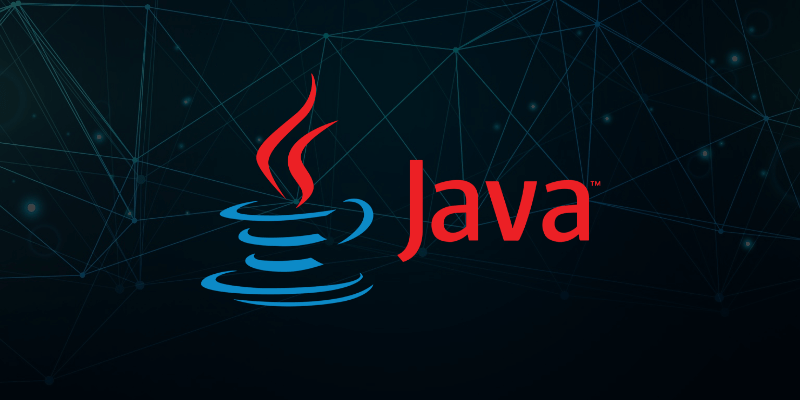
The only language that can challenge C++’s dominance in the industry, and for good cause. With its object-oriented design and a large community of third-party programs and platforms, Java is similar to C++ in many aspects. The key reason for Java’s popularity as the industry’s de-facto blockchain programming language is its tremendous portability.
Because Java programs don’t rely on system-specific architecture, they can run on any computing device. Instead, they execute code using the universal JVM (Java Virtual Machine). As a result, Java is one of the greatest blockchain programming languages.
The language is based on C-syntax and is commonly used to create advanced smart contracts and decentralized applications (dApps) due to the following features:-
- Ease of memory clearing
- Robust support for OOP (Object-Oriented Programming) methodologies,
- Plenty of libraries is available.
NEM, IOTA, NEO, and Hyperledger Fabric are some of the top Blockchain solutions built with Java.
Solidity
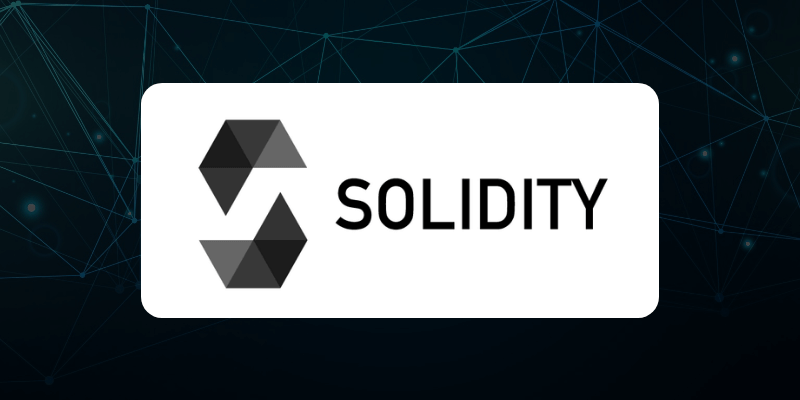
Solidity is a fascinating new blockchain programming language that has exploded in popularity in recent years. Many businesses are choosing this programming language because of its ability to create dApps.
It’s also a high-level programming language, like JavaScript, C++, and Python. It’s contract-oriented, like these other widely used languages, which means smart contracts are in charge of storing all of the logic used in blockchains, making it one of the most popular blockchain coding options today.
It provides lots of new advantages to blockchain development companies, including:-
- Developer-friendliness
- There are infrastructures for JavaScript, debuggers, as well as other tools.
- Programming that is statically typed is referred to as statically typed programming.
- Inheritance properties in smart contracts are a possibility.
- Precise accuracy
Ruby on Rails
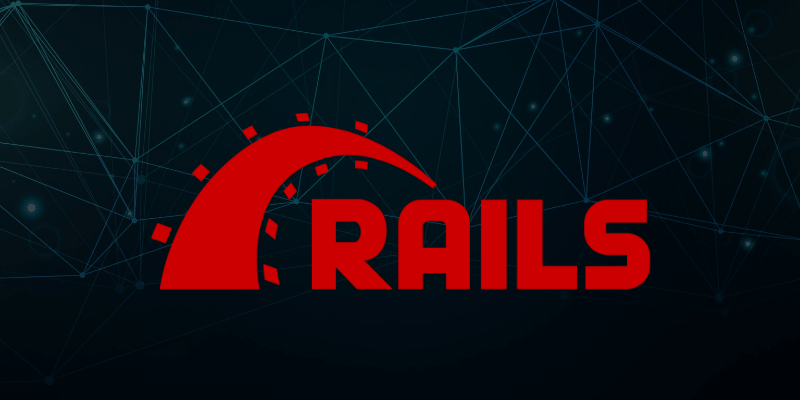
The finest language to start your blockchain programming career with.
Not to mention, Ruby is an object-oriented, interpreted high-level programming language with a clear and concise syntax for developers. It was created in the mid-1990s and is now gaining popularity as a reliable blockchain programming language. The reason for this is that Ruby has a plethora of open-source plugins and third-party APIs that allow developers to quickly prototype their ideas. The language also allows developers to combine its features with those of other languages to create a more powerful platform.
Asian developers are very interested in using it to create Blockchain-based applications and services.
Go
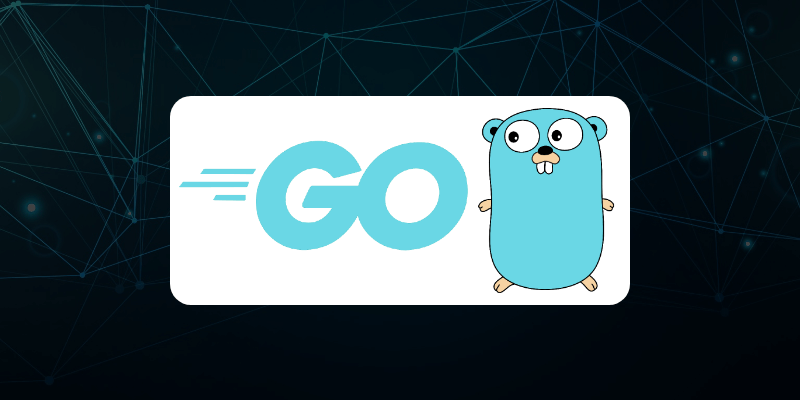
Programming language has also made a strong appearance in the top Blockchain coding languages.
Go is the best blockchain programming language for building a hyper ledger network. The performance criteria for blockchain coding languages are met by the statically typed but compiled language. Furthermore, Go includes all of the advanced tools you’ll need to build your Blockchains, such as classes and inheritance, generics, annotations, constructors, and exceptions.
The language is not only simple to learn, but it also has all of the benefits of JavaScript and Python, such as usability, scalability, flexibility, and speed. As a result, it is an ideal choice for delivering customized Blockchain solutions.
Go-Ethereum and Hyperledger Fabric are two of the most popular Go-based Blockchain systems available in the market.
SQL

One of the top blockchain technology programming languages to consider is SQL (Structured Query Language).
IBM created the language to make it simpler and more convenient to work with databases such as MySQL, SQL Server, PostgreSQL, and Oracle. It is used in the Blockchain domain to provide secure and effective enterprise solutions. Aergo is a good example of this.
Simplicity
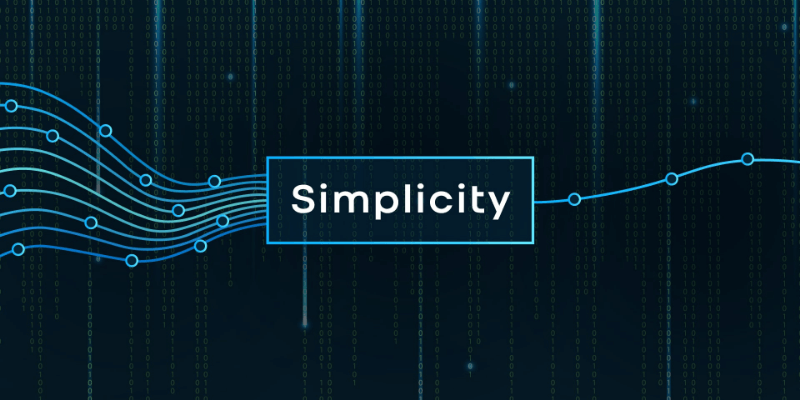
O’Connor created Simplicity, a new blockchain programming language that first appeared in the industry in November 2017. It’s a rather high-level blockchain coding language designed at simplifying low-level knowledge of Bitcoin Script, the Bitcoin blockchain’s integrated smart contracts language.
Both open-source developers and pros hail the language as one of the greatest blockchain programming languages for writing smart contracts. Simplicity boosts developer efficiency by obscuring low-level logical components, allowing for a considerably shorter development cycle.
Rust
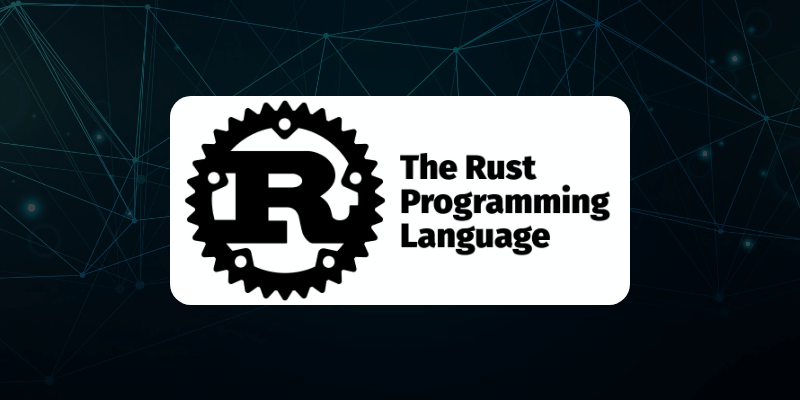
Programming language Rust, although a relative newcomer to the Blockchain ecosystem, is being widely evaluated for developing unique, immutable, and secure solutions.
Additionally, Rust, the newest blockchain app programming language, seeks to give open-source developers the ability to design quick and efficient blockchain systems. When it came to CPU-bound activities, we found Rust to be particularly good. With Rust, you can design your blockchain using either a functional or imperative approach.
Because of its ability to handle mutable states, it’s one of the greatest programming languages for blockchain. The Rust compiler optimizes your blockchain to incredible levels. This blockchain coding language is ideal for creating real-world blockchains because it is fast, memory-safe, and completely concurrent.
Conclusion
Blockchain app development is thriving and on its way to becoming widespread. As a result, it’s a good idea to learn about technology and how to use it as soon as possible. With the advancement of Blockchain, new programming languages will continue to emerge. You must dive deep into any language you choose to learn or develop your blockchain-based products in.
The main elements to look for in a blockchain app development programming language are features, functionality, and security. If you’re having trouble understanding these technical languages, it’s a good idea to contact a blockchain app development company.
FAQs
What programming languages does blockchain use?
For Blockchain development, a variety of programming languages are available. Primitive languages like C++, blockchain programming languages like Java, JavaScript, and Python, and newcomers like Solidity, Simplicity, and CX are among them.
How to build a blockchain app?
Following are the steps to build a blockchain app development:
1: Clarify your idea
2: Do competitor research
3: Analyze your options
4: Choose a platform
5: Start the development process
6: Deploy and maintain your DApp
